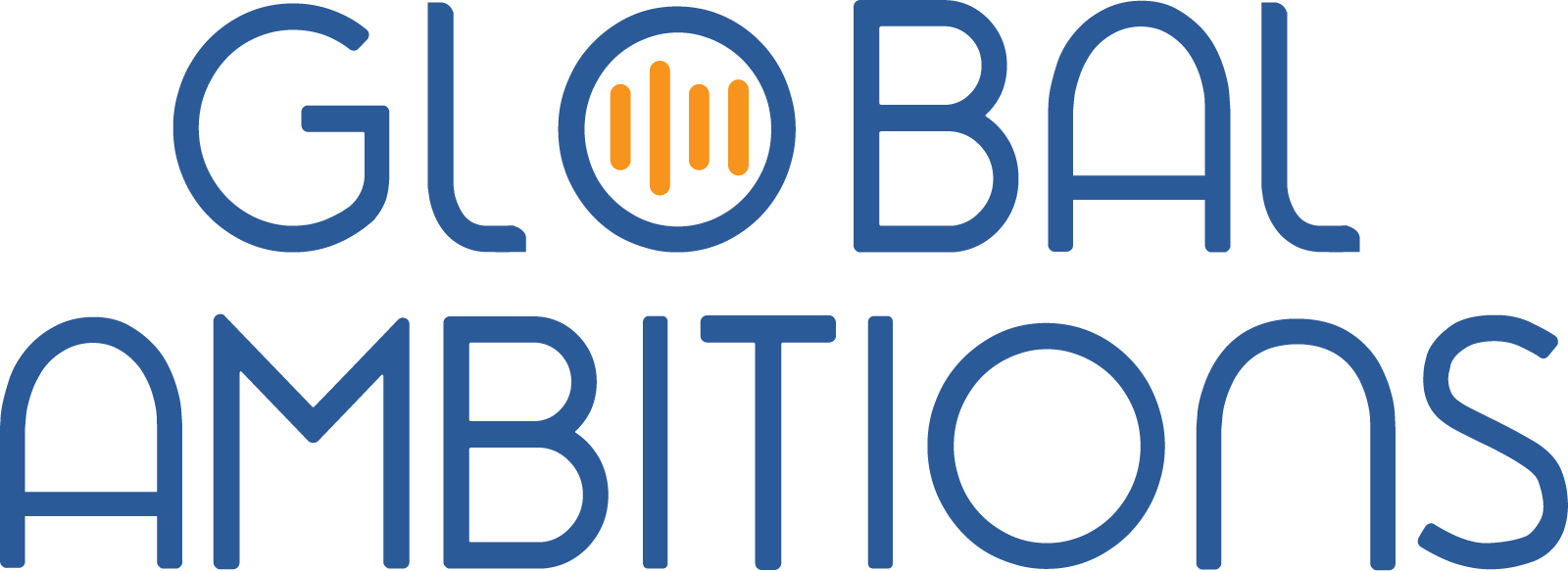With Dora Zielske, Global Digital Product Owner at AGCO
Below is a complete transcript of this episode.
Stephanie Harris
Hi, my name is Stephanie Harris, and I’ll be your host today for this episode of Global Ambitions. Our guest today is Dora Zielske, and she’s the global digital product owner at AGCO. And she has over 20 years of experience in globalization and localization. So we’re really looking forward to getting some good insights from her today. So our topic today is going to be the challenges around creating, developing and implementing global digital products. So Dora, welcome to the program.
Dora Zielske
Thank you for welcoming me, Stephanie. I’m very happy to be here.
Stephanie Harris
Happy to have you. So let’s go ahead and kick it off. Can you just tell us a little bit about yourself and your background ?
Dora Zielske
Certainly. Yes. It started quite a few years ago when I was first involved in localization, globalization, still at university. As a student, I started working for a software company. So it was very much the early days, I would say, in the 90s when this whole market started. And it was interesting times.
I’m originally from from Budapest, Hungary, and it was fun times in the 90s when all the companies were coming to our country and into the region. So I was fortunate to work for a Swedish company bringing in a software, and that’s when I first started doing some localization work and identifying requirements for for Turkey and Russia and all the neighboring countries, also, of course, including Hungary.
So then I moved to Oracle and spent a wonderful nine years there as a principal consultant in financial applications. And because of my earlier background, again, I also became the localization manager for Hungary and then also for the neighboring countries and was supporting global development with all the requirements.
And then I moved over to SAP and also great years there. As with the globalization services we were responsible for, and still globalization services at SAP is still responsible for, ensuring that all the software are meeting global and local requirements.
So that’s where my experience in this area is coming from. And now I am building a global platform for digital assets, storing, managing, and managing the usage of digital assets, which is I think, a very, very interesting and fast growing area. Yeah. Also in importance.
Stephanie Harris
Well, wonderful. Well, it sounds like you’ve been at a lot of different companies and have some really good experience around these digital products and going global specifically. So what are some of the biggest challenges that you’ve consistently seen in the past at all of these different companies around really getting those global digital projects up and off the ground?
Dora Zielske
First of all, I would say awareness. Awareness that there are many countries in the world, and if I want to go into those markets, I really need to consider, let’s say if I’m a company developing software, right, and I’m enabling others to use this software and also in other countries, I really need to make sure that this software. It’s not just that I sell it, but then also that it meets the requirements of those countries. So this awareness is very important.
Number two, I would say, is the cost, right? Most of the time it’s not directly bringing revenue. So the challenge that I’ve been facing is to secure the funds for doing the localization activity, at least at this was in the early times, because it is a cost to ensure that a piece of software is localized. That was definitely a challenge, I would say.
And what I see is that still the importance or the awareness is not yet fully there to get things right at the beginning. So how do you set up the architecture of your software so that it can be expanded globally?
Stephanie Harris
Right, Right. Is that around the differences between globalization and localization? And, you know, even the definition of that, I would imagine that a lot of companies are unaware of and they don’t know how to go about it. So how do you get around that and educate people on “this is what we need to do”. This is the proper way for these kinds of digital products.
Dora Zielske
Well, first of all, what I try to do is to explain what globalization is. To summarize it in a nutshell. One part is internationalization, where you ensure that your software is able to support all various countries. So here, depending on the country, you might have a different metric system, right? You might have a different date format, you have different characters, right? You have the addresses differently displayed, not to mention time zones, right? If you have a website, then you are setting it up such that you are able to support different country and language versions. So that is one side which is internationalization.
And then localization comes afterwards when you have a look at each of the country requirements. And here very often localization is used for the term translation, which is a bit narrow, right? It in many cases, yes, that might be true. But in for many of software or even if you have an e-commerce and you go into a country, you really need to consider what are the legal and business requirements that you have to comply with. So in my understanding, especially if you’re coming from an ERP business where you have financials or a purchase sales aspect, it’s very important that you also consider a compliance question from that moment on that you are complying with local legal requirements.
Stephanie Harris
Say I’m a localization manager at a company who’s just starting to go into these different markets. Where would I go? Or how would you recommend researching the compliance part of it? How have you made yourself aware of those particular requirements?
Dora Zielske
Nowadays it’s easier on the internet. I’m sure you can find it. I haven’t been doing some research on this. Like how? Where do I go if I have a specific requirement? You have these big companies out there, for example, who you can turn to. The big four, they will have the expertise to support you with legal requirements in specific countries. So for example, if you were talking about taxation, certainly I would go to a local legal expert to give me advice or accounting questions. Then I would would go there to support me with those.
Otherwise do research. You can also do like to go to the Chambers of Commerce’s in the country. This is what I have done earlier. Research the Internet. And the authorities in the countries are usually very helpful and their websites also have a lot of information on what you need to consider.
Stephanie Harris
Yes. So are there any other common missteps that you’ve noticed in the past that a lot of companies make when they’re trying to go into these different countries or just starting this process?
Dora Zielske
I would suggest to define your scope of globalization upfront. So really look at your specific use case. What is my product? Is it a piece of software that I need to localize, or is it maybe more my content that I need to localize because I want to provide specific digital content to my customers or my audience? Then define your scope and identify what are the countries. Yes. And what is it that you have to consider. Certainly translation is also going to be in most cases because, yes, English is a very common language, but depending on your product, that might not be enough to have your piece of software only in English.
Stephanie Harris
Yeah. Well, do you have any tips around how to successfully go about this? You mentioned as far as defining your scope is a good way to get started. Once you’ve already kind of jumped in, are there any, you know, processes that you should follow or even technologies that you’ve seen that have been very helpful or anything like that?
Dora Zielske
Of course it depends on on on what is your use case again. But if you, for example, are there and looking to choose a software which you want to implement so that it is supporting your ambitions, then make sure that the software is globalizable. That’s always the ideal. If you have a package software which is already delivering to you most of the requirements that you would have, including also potentially the software in various languages, but maybe even already legal compliance is included there. So that would be something most of the ERP systems are definitely bringing you this content together with their configurable system.
So that would be something to really look at your software when you are making this choice, whether it is supporting your ambitions properly. Because building it on top is always going to be a bespoke development and complicating also the maintenance of this software. So if you’re building your own, then yes, please consider all these items about internationalization and also create software which is configurable in this aspect.
So always consider that potentially your use case at the moment is only for 2 or 3 countries or you are, I don’t know, you only want to share content which are at the moment images, but you know, maybe in six months down the road you will find that you also want to share videos, you want to share podcasts and additional things. So whatever is the program in the back supporting this software is, make sure that you are able to support this and also for the locales. So if you have a parameter somewhere which is like for which country, which language then included this option already upfront, so that once your business is that far and it’s coming requesting, “I would like to now roll out something to South America,” then you already just have to set the parameters and say, Yes, here it is, fine, it’s just a configuration and we can go ahead. So that makes life significantly easier later on.
Stephanie Harris
Yeah, Yeah. So it sounds like whether you’re in the buy or the build debate, it’s always a matter of making sure that it’s really customizable and modular almost. So when you need to have a new system, it’s easier to add on.
Dora Zielske
Certainly, and include the globalization mindset. So always have certain glasses on , which is like, okay, so is this supporting my long-term ambitions for the various markets or not? Because going back, later on, is always more costly than getting the basics right at the beginning. And my advice would be is here to really, if you have consultants around you who can support you with this, how to do that, it’s worth including them upfront and and getting it right, then later on trying to move back. Yeah. Better to build it right the first time.
Stephanie Harris
Yeah, for sure.
Dora Zielske
As much as possible of course. Agility. And you go back and you learn. But there are a few things. If you have the experts, they will know what needs to be considered upfront.
Stephanie Harris
Okay, Well, I know we’re kind of coming to the end of our time, but I did have one final question. Going into the future, things change so fast and just the cycle of iteration seems to be getting shorter and shorter. What are your thoughts to the future?
Dora Zielske
Oh, it’s a very interesting future. We are producing a lot of digital content here. I would come to translation and the importance of translation because all this digital content. And if you are global, you need to translate this. So you need to make sure that your customers are having the content in their own language and relevant for their country. So translation I see. And the automation. So automation of translation is I think, a hot topic, definitely. Also, yes. Chatgpt and all the AI coming up.
So I’m looking forward to see how it is going to be possible to distribute this task of legal compliance monitoring, for example, to some kind of AI, which will then do that because with globalization, with global activity, that is another important task, and one that some companies underestimate. You also have to monitor for changes. Laws tend to change, right? And then, yeah, there’s all these countries with all these parliaments that they have new regulations. So you have to be continuously monitoring and then how to get this knowledge, for example, automated. I think there’s going to be a lot coming in this area.
And the sum of the digital content that is being shared and has to be managed is an interesting area for the future.
Stephanie Harris
For sure. Okay. Well, thank you so much, Dora. This has been very, very interesting and so glad to have you on the show.
Dora Zielske
Thank you very much for having me here. And I hope these were useful insights.





